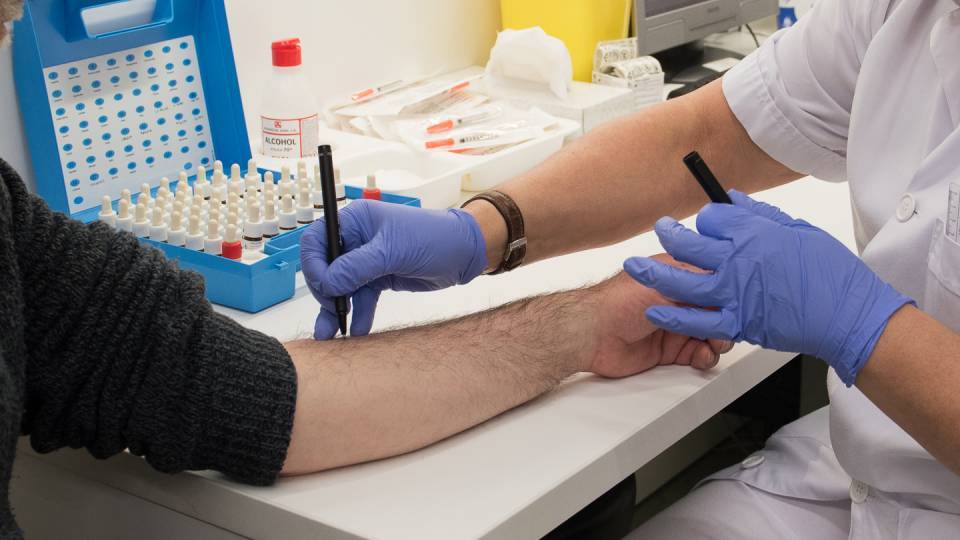COVID-19 may lead to symptoms such as a cough, a loss of taste and smell, or difficulty breathing, which may sometimes be confused with allergy symptoms. For example, in the case of allergic asthma, patients present a cough and difficulty breathing, which are two of the most common COVID symptoms.
Fortunately, there are some symptoms which allow us to tell one condition from the other. For example, in cases of allergy there is no fever. Meanwhile, with COVID, there tends to be a high fever that lasts for several days. Furthermore, in cases of allergy, symptoms improve when administering antihistamines, while this does not occur in patients with COVID.
Recently, a document from the EAACI (European Academy of Allergy and Clinical Immunology) was published in relation to this matter, with the participation of Dr Joaquim Mullol, an ENT specialist at Hospital Clínic and head of the IRCE Research Team (Clinical and Experimental Respiratory Immunoallergy) at IDIBAPS. This article discusses how to organise the new clinical practice in allergology during the pandemic.
The recommendations are based on international information about COVID‐19 and guidelines from the World Health Organisation (WHO), the EAACI and other international organisations. It is also based on the experience of medical experts, psychologists and scientists.
These recommendations tackle different aspects relevant to caring for patients with allergies. Some of these aspects are the clinical course of COVID in allergic patients and patient triage, as viral infections, including coronavirus infections, are associated with a worsening of allergies, for example exacerbating asthma. For this reason, the usual methods of organising patients can be used to prioritise and classify allergy patients depending on the severity of the allergic disease.
Even so, understanding the differences in the course of COVID-19 infection in allergic patients compared to non-allergic patients is limited and more clinical evidence is needed.
On the other hand, certain practices are needed in terms of digital health solutions, in particular the use of telemedicine. Remote consultations are useful for when physical presence is impossible or should be limited to the minimum, as is the case with the current COVID‑19 pandemic. Nevertheless, when the consultation requires the patient’s physical presence, certain changes to normal practice should be taken into account, such as minimising any physical contact with the patient during consultations and taking preventative measures specific to allergy diagnostic procedures. These procedures include examinations using endoscopy, bronchoscopy, olfactometry, gustometry, nasal or bronchial allergy tests, or testing pulmonary function.
Finally, socio-psychological aspects should be considered in allergic patients, as these mechanisms play an important role in the development and exacerbation of allergy symptoms. Furthermore, the population has been very sensitive to those displaying respiratory symptoms during the COVID-19 pandemic. This increases the risk of these patients being stigmatised, which can cause stress. As such, optimal medical and psychological care for patients with allergies is essential during the COVID-19 pandemic.
In summary, this international document offers recommendations on operational procedures in order to maintain the highest possible quality in day-to-day clinical care for patients with allergies, at the same time guaranteeing the safety needed during the ongoing COVID-19 pandemic.
Authors: Dr Paula Ribó, Allergology Section, Pneumology and Allergy Service, Clínic Respiratory Institute and Dr Joaquim Mullol, Otorrinolaringologia Service, Clínic Institute of Medical and Surgical Specialities.




